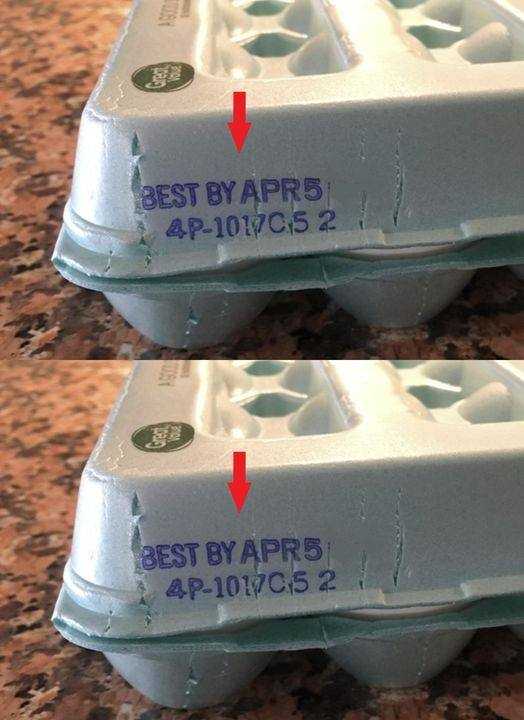ADVERTISEMENT
**Pay Attention to This Date from Now On: It’s Not an Ordinary Expiration Date**
We’re all familiar with expiration dates on food items, medicines, and even beauty products. However, there’s one date that many people overlook: the **“sell by”** or **“best by”** date. While it may seem like just another part of the packaging, this date often holds more significance than we realize—especially when it comes to **safety, quality, and freshness**. In fact, it’s not just an ordinary expiration date; it can offer important insights into how long an item is truly good to consume or use.
Understanding the difference between “sell by,” “use by,” and “best by” dates is key to making informed decisions about what you’re consuming and ensuring that your products are still in their optimal condition. Let’s break down why **this date matters** and why you should pay closer attention to it.
### **What Is a Sell By or Best By Date?**
First things first: there are multiple types of dates that are listed on food and other products. It’s important to understand what each one means:
– **Sell By Date**: This date tells the store how long to display the product for sale. It doesn’t necessarily mean the item is bad after this date, but the store is encouraged to sell it by this time to ensure maximum quality.
– **Best By or Best Before Date**: This date is more about **quality** than safety. It indicates when the product will be at its peak freshness or taste. It doesn’t mean the product is harmful after this date, but its flavor, texture, or nutrients may begin to degrade.
– **Use By Date**: This is the final date recommended for consuming the product for safety reasons, particularly for perishable goods. After this date, the product may pose a risk to health and should be disposed of.
### **Why Is This Date Important?**
The key to understanding these dates lies in recognizing that they **don’t always mean the product is unsafe** immediately after the specified date. Here’s why it’s important to pay attention to them:
1. **Food Quality and Freshness**
– A **Best By** date is an indicator of peak quality. It suggests that the product is most flavorful or nutritious before this date. Afterward, the taste, texture, or overall quality may diminish. For example, snacks like chips may lose their crispness or their flavor may become stale after the best-by date.
2. **Safety Considerations**
– The **Use By** date is particularly important for items like dairy, meat, or packaged ready-to-eat meals, where consuming them past the use-by date could increase the risk of foodborne illness. The longer the food stays past this date, the more likely it is to grow harmful bacteria or mold.
3. **Impact on Non-Food Items**
– The sell-by or best-by date can also apply to non-food items like medicines, cosmetics, and cleaning products. For instance, a **medication’s effectiveness** can decline after its expiration date, and certain beauty products may lose their potency or change in texture after their best-by date. It’s important to not only consider expiration dates for your health but also for the effectiveness of these products.
### **How to Interpret Expiration Dates on Various Products**
Each type of product requires different attention to its expiration date. Here’s how to apply this information effectively:
#### **1. Food Products**
– **Canned Goods**: Canned food items may last a long time after their sell-by or best-by date, but they should still be checked for any signs of damage (like rust or bulging) that could indicate spoilage.
– **Fresh Produce and Dairy**: For fresh produce, meat, and dairy, it’s crucial to follow the **use by** dates closely to avoid foodborne illness. Always check for signs of spoilage—like off smells, mold, or changes in texture—even before the use-by date passes.
– **Frozen Food**: Frozen food can remain safe for extended periods, but **quality** will degrade the longer it stays past its best-by date. Foods may lose flavor or texture over time, so try to use frozen items within a reasonable time frame.
**2. Medications**
– While it’s often tempting to hold onto expired medications, many over-the-counter and prescription drugs may become less effective after their expiration date. This can be a particular concern for things like **antibiotics** or **pain relievers**, which could either lose potency or cause undesirable side effects.
– **Tip**: For any expired medication, it’s best to dispose of it properly, rather than risk its diminished effectiveness.
For Complete Cooking STEPS Please Head On Over To Next Page Or Open button (>) and don’t forget to SHARE with your Facebook friends
ADVERTISEMENT
